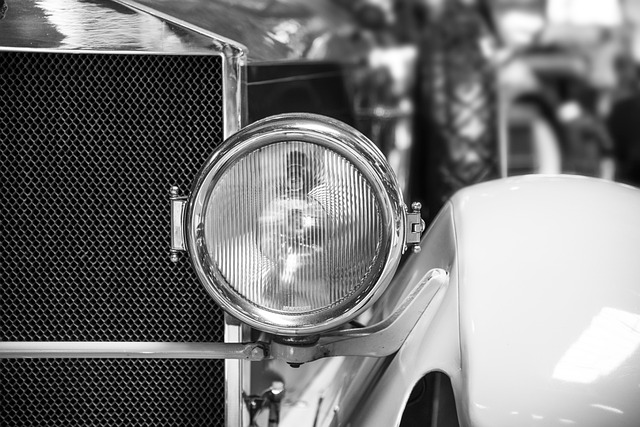Decoding PCP Balloon Payments: A UK Guide to Claims and Management
In the UK, Personal Contract Purchase (PCP) is a prevalent car financing option that involves an in…….

In the UK, Personal Contract Purchase (PCP) is a prevalent car financing option that involves an initial deposit followed by regular monthly payments, with a substantial final balloon payment due at the end of the contract. This balloon payment, which reflects the car's anticipated depreciation, can be paid to own the vehicle outright or used as a foundation for a new PCP agreement. Consumers should carefully consider their vehicle's expected resale value and their long-term plans when entering into a PCP contract. Upon completing the contract, you can choose to return the car, buy it outright by settling the balloon payment, or continue with another PCP deal, leveraging any equity built up. It's crucial for PCP claimants in the UK to manage their finances effectively, including setting aside funds for the balloon payment and monitoring their vehicle's condition and mileage to avoid additional charges. Additionally, maintaining the car and understanding market values are essential for maximizing the value of a part-exchange when considering a new vehicle. PCP claimants should be aware that early settlement or part-exchange options may come with specific costs and benefits that depend on various factors, including the remaining term of the contract and current market conditions. Staying informed about your PCP claim's status and implications is key to making smart financial decisions and avoiding potential pitfalls associated with PCP agreements.
When considering vehicle financing options, understanding the intricacies of a Personal Contract Purchase (PCP) with a balloon payment is crucial. This article delves into the mechanics of PCP balloon payments, their prevalence in the UK market, and how they can impact your car ownership journey. We’ll guide you through navigating PCP claims, offering a comprehensive step-by-step process for managing your end-of-contract options. Additionally, we’ll provide valuable tips to help you manage your PCP balloon payment effectively, steering clear of common finance pitfalls. Whether you’re new to car financing or looking to better understand your existing PCP arrangement, this article will serve as an informative resource.
- Understanding PCP (Personal Contract Purchase) Balloon Payments and Their Role in Vehicle Financing
- The Mechanics of a PCP Balloon Payment: How It Works in the UK Market
- Navigating PCP Claims: A Step-by-Step Guide for Managing End-of-Contract Options
- Tips for Managing Your PCP Balloon Payment and Avoiding Common Pitfalls in Car Finance
Understanding PCP (Personal Contract Purchase) Balloon Payments and Their Role in Vehicle Financing

When considering a new vehicle purchase in the UK, Personal Contract Purchase (PCP) often stands out as a popular financing option. A PCP agreement allows individuals to pay an initial deposit followed by fixed monthly repayments for a predetermined term. At the end of the contract, the customer has several options: return the vehicle, purchase it outright, or enter into a new agreement. A key component of PCP is the balloon payment, which is the lump sum due at the end of the contract to own the car outright.
The balloon payment represents a significant portion of the car’s value and is calculated based on the depreciation of the vehicle over the term of the agreement. This large final repayment is known as the ‘minimum guaranteed future value’ or ‘balloon figure.’ It’s crucial for potential PCP claimants to understand how their chosen vehicle will retain its value, as this directly affects the size of the balloon payment. PCP claims in the UK have become more prevalent, with customers increasingly seeking to either settle this final payment and take ownership of their car or opt for a new agreement that reflects the remaining balance after settling the balloon figure. Understanding the role of the balloon payment within PCP agreements is essential for consumers to make informed decisions about vehicle financing and to navigate the terms and conditions of PCP claims effectively.
The Mechanics of a PCP Balloon Payment: How It Works in the UK Market

In the UK market, Personal Contract Purchase (PCP) has become a popular financing option for consumers looking to acquire vehicles. A key aspect of this financial product is the ‘balloon payment’, a lump sum that represents a significant portion of the car’s value and is due at the end of the agreement term. This structured approach allows individuals to manage their finances more effectively, knowing exactly what their monthly payments will be over the contract period.
The mechanics of a PCP balloon payment are straightforward yet effective in managing vehicle costs. At the outset, the customer agrees on an initial deposit and a fixed term for the agreement, typically between two to five years. Throughout this period, the customer makes regular monthly payments based on the difference between the car’s purchase price and its estimated residual value. The latter is the balloon figure that is deferred until the end of the contract. Once the contract ends, the customer has options: they can return the vehicle to the finance company, usually with a maximum of 10,000 miles over the term, pay the balloon payment to own the car outright, or part-exchange the vehicle and use the equity towards another PCP deal. It’s important for customers to consider their future needs and financial situation when opting for a PCP with a balloon payment, as this will influence their choices at the end of the agreement. In the UK market, PCP claims have become more prevalent, with customers seeking to reclaim mis-sold or unclear PCP terms, leading to an increase in regulatory scrutiny and consumer awareness. This has resulted in a rise in PCP claim submissions across the UK, highlighting the importance of understanding the full scope of PCP agreements before entering into one.
Navigating PCP Claims: A Step-by-Step Guide for Managing End-of-Contract Options

When approaching the end of a Personal Contract Purchase (PCP) agreement, understanding your options is crucial for effective financial management. PCP is a popular car finance option in the UK, allowing consumers to pay an initial deposit followed by fixed monthly payments for the duration of the agreement. At the conclusion of the contract, you have several paths to take, each with its own implications.
To navigate PCP claims successfully, start by reviewing the terms and conditions of your original contract. This will provide clarity on what options are available to you at the end of your agreement. Typically, you’ll have the choice to either return the car, purchase it outright, or part-exchange it towards a new vehicle. Each option has different PCP claims processes. For instance, if opting to hand back the vehicle, ensure that it is in good condition, as exceeding agreed mileage or damage beyond fair wear and tear can result in additional charges.
If you decide to own the car outright, you’ll need to settle the optional final payment, also known as a balloon payment. This sum was predetermined at the start of your PCP agreement and is the difference between the car’s initial value and its estimated value at the end of the contract, minus the total amount you’ve already paid. To make this payment, you can use savings, remuneration, or choose to finance it through another agreement.
For those who wish to upgrade to a newer model, part-exchanging your current vehicle is a common route. The equity you’ve built up in your PCP claim can be used as a deposit for your next car finance arrangement. It’s advisable to calculate the potential equity and research the current market value of your vehicle to negotiate effectively when part-exchanging.
Throughout this process, it’s beneficial to consult with a financial advisor or the PCP provider to ensure that you fully understand your rights and obligations under the PCP claims UK system. Proactive management of your PCP claim can lead to informed decisions and a smoother transition at the end of your contract.
Tips for Managing Your PCP Balloon Payment and Avoiding Common Pitfalls in Car Finance

When managing a Personal Contract Purchase (PCP) with a balloon payment, it’s crucial to plan ahead and understand the financial commitment you’re making. One effective strategy is to set aside a savings fund specifically for the balloon payment due at the end of your contract term. This can alleviate the strain on your finances when the time comes to settle this substantial portion of the agreement. Keep track of your PCP claims, especially if you’re in the UK, as maintaining accurate records can help ensure that all payments are accounted for and that you’re prepared for the final balloon payment. Regularly reviewing your PCP claim status is a prudent step; it allows you to anticipate the residual value of your vehicle and plan accordingly.
To avoid common pitfalls in car finance, be wary of exceeding your agreed mileage as this can result in additional charges. It’s also important to keep your vehicle well-maintained to prevent unexpected repair costs that could impact your financial planning. Be mindful of the condition of your car at the end of the contract, as damage or wear beyond what is considered ‘fair wear and tear’ could affect the balloon payment amount you owe. Lastly, when considering early settlement or part-exchange options, ensure you understand the potential costs and benefits, as these can vary significantly based on market conditions and the remaining term of your PCP agreement. By staying informed and managing your PCP arrangement responsibly, you can navigate the car finance landscape successfully and avoid common pitfalls.
When considering a Personal Contract Purchase (PCP) for vehicle financing in the UK, understanding the mechanics and implications of a balloon payment is key. This article has demystified PCP balloon payments, elucidating their role within the car finance landscape and providing practical guidance on managing PCP claims. With the steps outlined for navigating PCP claims in the UK and tips to avoid common pitfalls, consumers are now better equipped to make informed decisions at the end of their contract term. Remember that managing a PCP balloon payment responsibly is essential for maintaining financial flexibility and ensuring the best possible outcome when your vehicle lease concludes.







